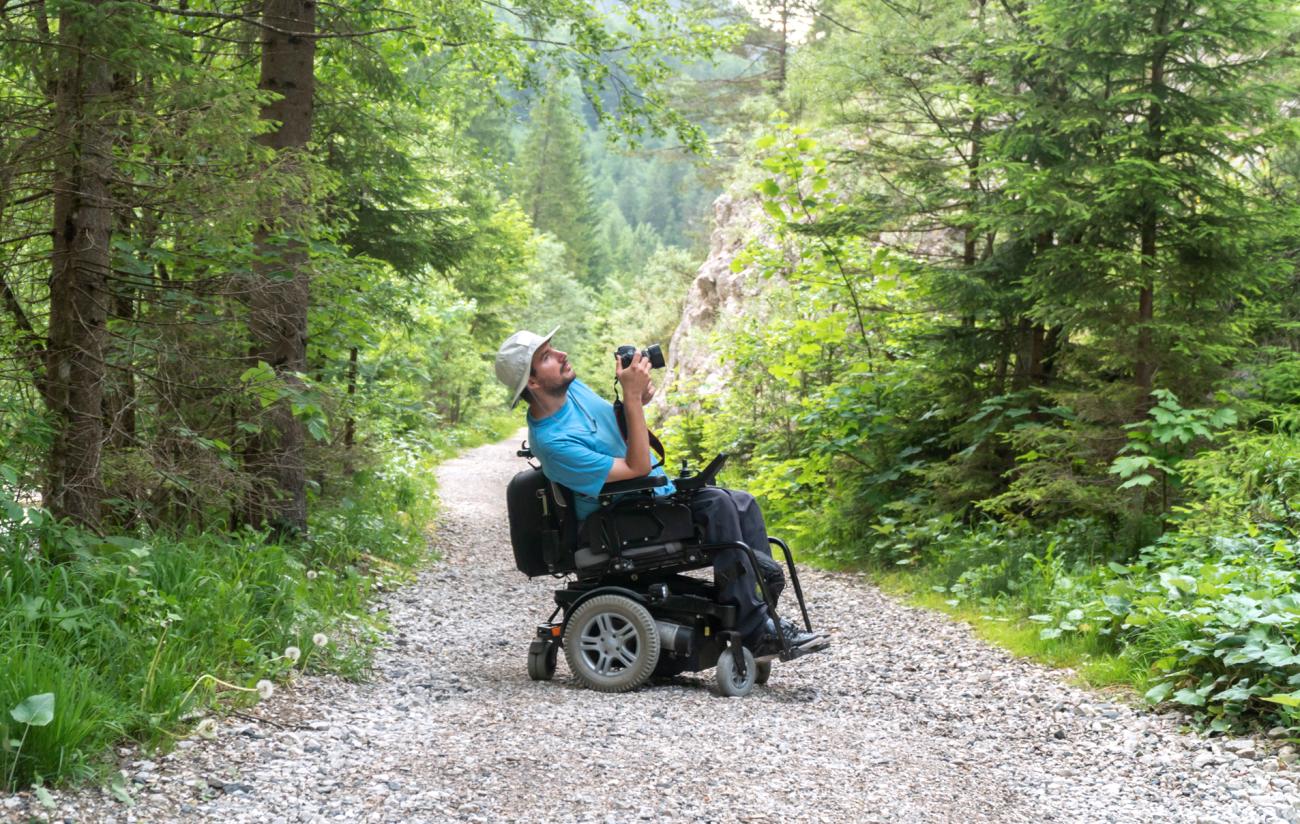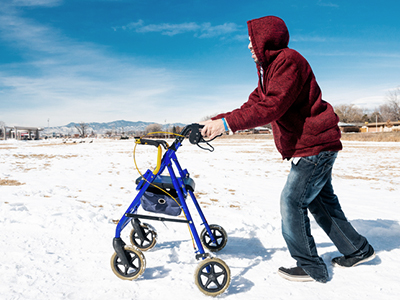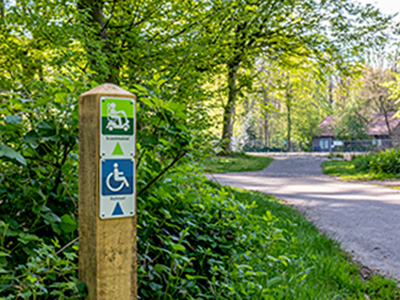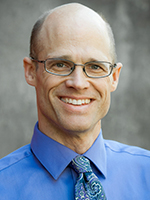
Our expert shares current and upcoming opportunities to make the outdoors more accessible to everyone, year-round.
Slick or snowy surfaces can be a significant barrier to outdoor recreation for the more than 22 per cent of Canadians over 15 years of age — about 6.2 million individuals — living with one or more disabilities. Vancouver Coastal Health Research Institute researcher Dr. Ben Mortenson explains how upgraded infrastructure and better access to specialized equipment could greatly enhance their lives.
Q: What are the main barriers experienced by people living with disabilities who want to engage in outdoor winter activities?
A: Participation in outdoor activities should be thought about like a journey for people living with physical impairments, which may involve multiple steps and complex planning. It might involve renting or booking equipment that would be very expensive to purchase. Some organizations provide adaptive winter programs and gear, such as adaptive skiing or snowboarding; however, these programs are often at capacity and many require pre-booking, which limits spontaneity. People may need to apply to participate, and may be placed on a waitlist until a spot becomes available. And, while there are several programs for active experiences in the snow, there is also a need for other accessible outdoor winter program offerings, such as sleigh or snowmobile rides.
Another barrier is the digital accessibility of websites that people living with disabilities may need to visit when planning their trips. Many websites have not integrated digital accessibility features for people with vision impairments. In addition, there is a significant challenge in securing accessible transportation when travel is required to get to places like local mountains.

Q: Are there specific barriers that affect people with hearing loss?
A: People who are deaf primarily experience communication barriers when trying to take part in programs or find information when visiting parks. Sign language interpretation may not be available and some resources may be provided only in audio format or through videos that do not include captions.
Since many older adults with hearing loss do not use sign language, making sure resources are in an accessible format is critical. For those who use hearing aids, remote microphones can also provide a wireless direct audio input that overcomes negative effects of distance, background noise and reverberation; however, these need to be available and used.
Q: Who is most affected by these barriers?
A: People of all ages who use mobility devices, such as wheelchairs and walkers, have greater difficulty navigating unstable, snowy conditions. Individuals living with disabilities are also disproportionately more likely to experience unemployment or underemployment, placing many in a lower income bracket. As a result, they may not be able to afford the equipment or accessible vehicles needed to take advantage of outdoor recreation opportunities.
Q: How can outdoor activities be made more accessible?
A: For one of my research projects, my team and I are collecting information to recommend accessibility standards for Canadian park websites, including listing information about accessibility features available within parks. Wayfinding signage at parks should also be made as accessible as possible through the use of high-contrast text and images; braille descriptions or braille trails; and topographical maps that people with vision impairments can touch to get a sense of the area. Ropes and raised features bordering trails are other useful navigation aids for people with vision impairments. One great local example of an accessible trail is at Lighthouse Park in the District of West Vancouver.

Q: What are some ways that I can get involved or learn more?
A: Volunteer with an organization that supports people living with disabilities or donate to their cause. When you encounter parts of your community that should be accessible but are not, voice your feelings to your local government council members.
Here are a few other resources that may be of interest:
- BC Adaptive Snowsports lists adaptive ski hills in BC
- Nordic Racers Ski Club in Vancouver offers paranordic activities
- Accessible Okanagan offers outdoor programs for people living with disabilities
- HUB Cycling in Vancouver has an adaptive cycling group with outings
- Trailforks provides information on accessible biking trails



